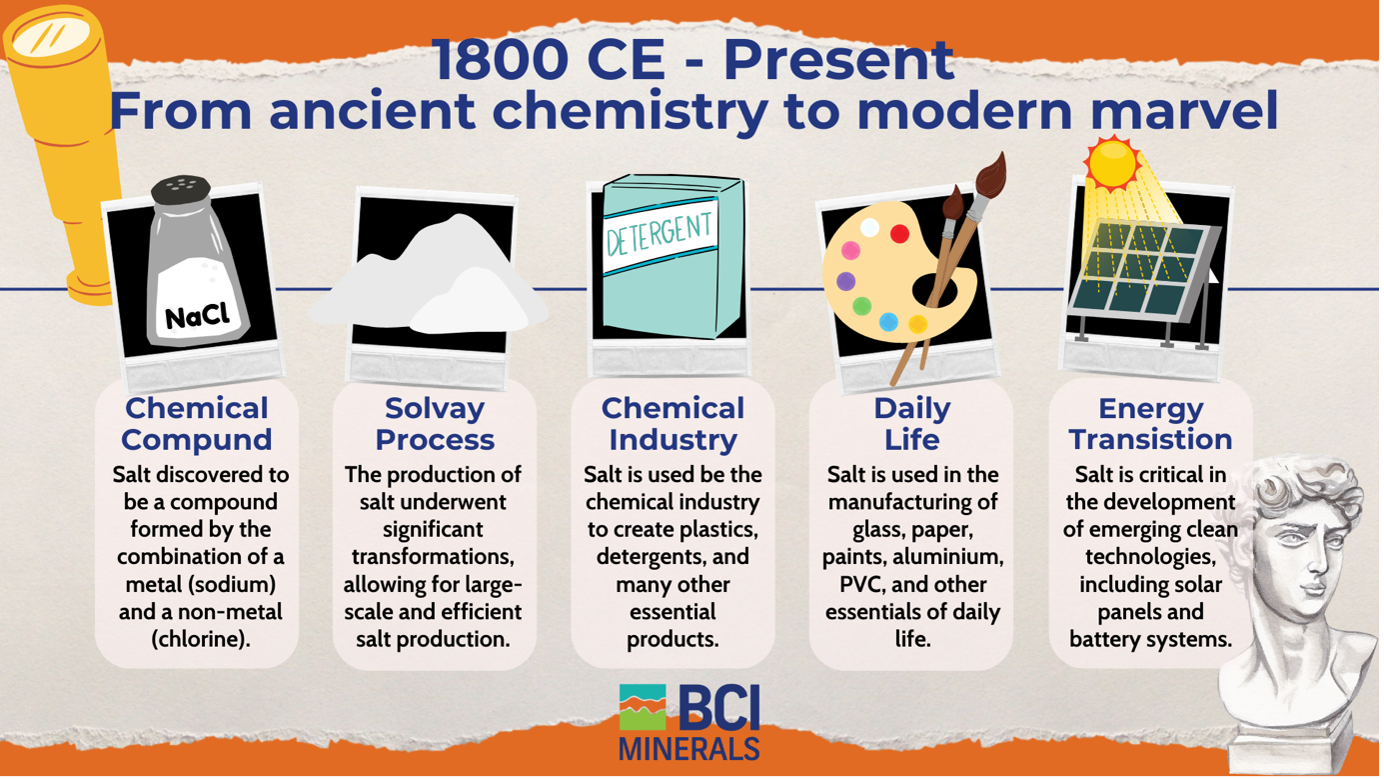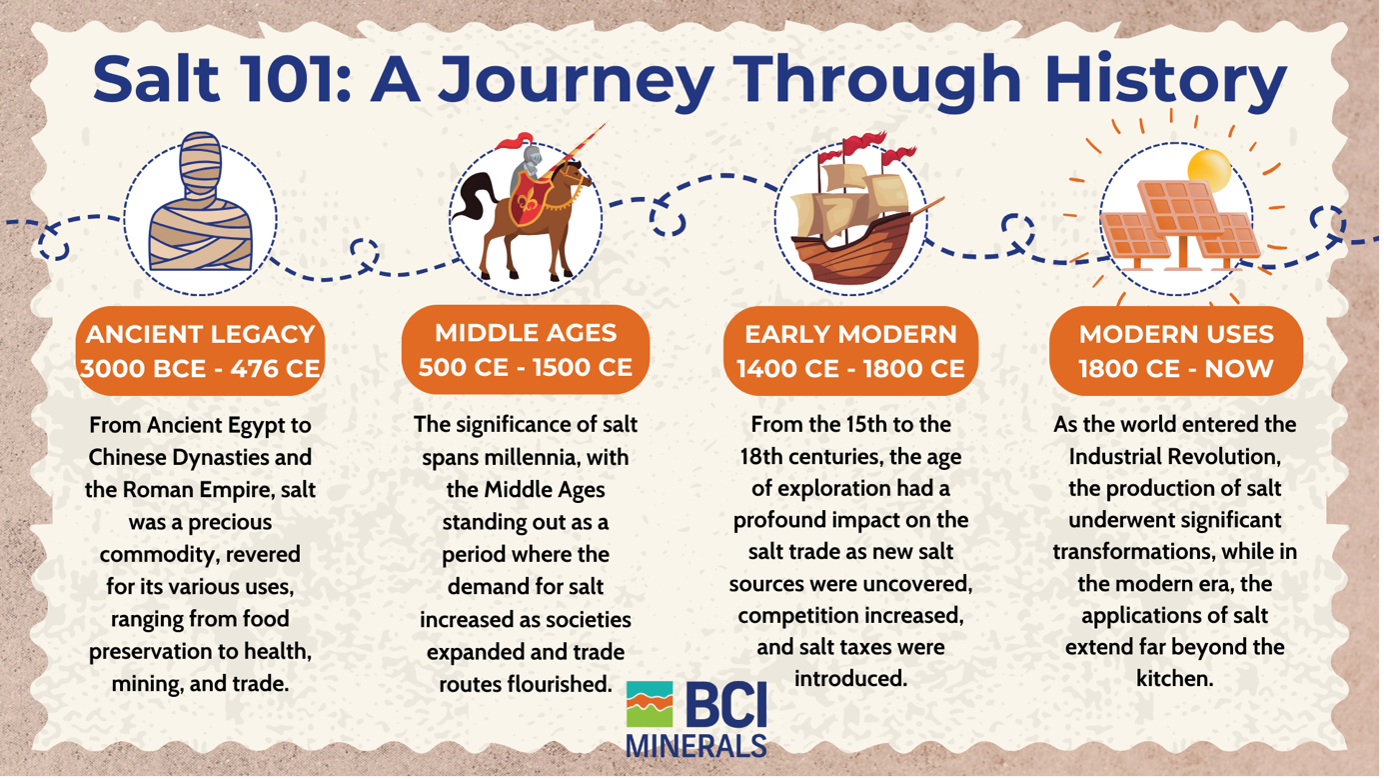
Salt has played a pivotal role in human history, influencing economies, shaping societies, and even sparking revolutions.
To better understand the value of this critical resource today, we journey back in time to travel the salt road.
The history of salt comes to an end with its journey through the Chemical Revolution and into the current modern applications.
Chemical Revolution
Fast-forward to the late 17th and 18th centuries, a period known as the Chemical Revolution, where ground-breaking advancements were made in the understanding of chemical processes.
One of the key figures during this time was Antoine Lavoisier, often regarded as the ‘Father of Modern Chemistry’.
Lavoisier's meticulous experiments and revolutionary ideas transformed the way scientists approached the study of matter, and in the realm of salt, Lavoisier made significant contributions.
He recognised salt was not an indivisible element, as was previously believed, but a compound formed by the combination of a metal (sodium) and a non-metal (chlorine).
This revelation laid the foundation for a more systematic and accurate understanding of chemical compounds, setting the stage for the modern science of chemistry.
Sodium and Chlorine
By the early 19th century, Sir Humphry Davy had successfully isolated both sodium and chlorine through electrolysis, further confirming Lavoisier's insights.
This breakthrough not only advanced the understanding of salt's composition but also opened new possibilities for its industrial production.
Industrialisation and Modern Uses
As the world transitioned into the Industrial Revolution, the production of salt underwent significant transformations.
New methods, such as the Solvay process developed in the late 19th century, allowed for large-scale and efficient salt production.
The chemical industry began to utilise salt as a raw material for various products, including chlorine, sodium hydroxide, and soda ash.
In the modern era, salt's applications extend far beyond the kitchen, and the chemical industry using it to produce plastics, detergents, and numerous other essential products.
It is an essential element in manufacturing processes that impact our daily lives, including the production of glass, paper, paints, aluminium, and PVC.
Salt is also at the forefront of the energy transition as a critical mineral in the development of emerging clean technologies, including solar panels and battery systems.

This brings us to the end of our journey into the history of salt, concluding that the resource has played a critical role in human history - from food preservation to economic growth and connecting cultures across the globe.
As we look ahead, there’s no doubt that salt will continue to be a key ingredient in our development, particularly as the world moves to a clean energy future!
Catch up on the whole journey here:
- The Ancient Legacy of Salt
- Shaping History in the Middle Ages
- A Journey through the Early Modern Period

